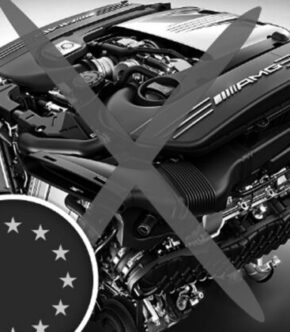The European Union has finalized legislation requiring that by 2035, all new passenger cars and vans sold in member states must be zero-emission vehicles. This effectively bans the sale of new gas, diesel, and even hybrid cars. Automakers face a 55 percent emissions reduction target by 2030 compared to 2021 levels, with the full 100 percent cut in place by 2035. The law is meant to push Europe toward its larger goal of carbon neutrality by 2050.
EU leaders frame the ban as both a climate initiative and an economic strategy. By mandating electric vehicles, Europe hopes to slash emissions, accelerate innovation, and lead the world in green transportation technology. Proponents say the policy gives automakers regulatory certainty, encourages infrastructure investment, and ensures Europe will not fall behind China and the United States in the EV race.
Growing Challenges and Political Backlash
Despite these ambitions, cracks are appearing in the plan. German auto executives have led the charge in warning about the risks. BMW’s Oliver Zipse called the deadline a “huge mistake,” while Mercedes-Benz CEO Ola Källenius said Europe was “driving full speed into the wall.” They argue that instead of rigid deadlines, governments should focus on incentives such as lower electricity prices and tax breaks to make EVs attractive to consumers.
Even within politics, resistance is building. The European People’s Party, the largest bloc in the EU Parliament, says the ban is ideological and risks making driving unaffordable. Some countries want exceptions for biofuels or e-fuels, while France insists on keeping the ban but supports watering down near-term emissions targets to save struggling automakers.
Green groups and some policymakers argue that only firm deadlines can force the industry to change. They say hybrids still emit CO₂ and that any delay will undermine climate goals. Companies like Volvo remain committed to going fully electric by 2030, saying that those who prepared early should not be punished by weakened rules. Supporters also point to declining battery costs and expanding charging networks as evidence that the transition is both possible and inevitable.
Skeptics point to plummeting EV demand, high battery costs, and Europe’s dependence on China for critical minerals. Geoff Thompson, a UK car expert, said Europe’s largest automaker Volkswagen is already showing signs of financial stress, calling it the “canary in the coal mine.” Used diesel cars remain attractive because replacement EV batteries often cost more than the vehicles themselves. Skeptics warn that the ban could destroy jobs, shrink Europe’s industrial base, and deepen reliance on foreign suppliers.
Why This May Be a Bad Idea
Europe’s energy insecurity makes the 2035 ban especially dangerous. The continent shut down too many nuclear plants, bet heavily on intermittent renewables, and then lost reliable access to Russian gas. Germany, Europe’s industrial engine, now relies on expensive imports and even restarted coal plants to keep the grid stable. This fragile energy foundation already forced factories to downsize or move abroad. Adding the burden of an all-electric fleet—which depends on massive amounts of electricity and costly infrastructure—could push Europe’s manufacturing sector to the breaking point.
Industry and Manufacturing at Risk
Automaking supports more than 13 million European jobs and 7 percent of EU GDP. Yet factories are closing, investments are shifting overseas, and defense contractors are circling idled plants to convert them into weapons production. As one industry insider warned, between making cars and making tanks, the connection is uncomfortably close. The EU’s rigid car ban risks accelerating the collapse of Europe’s industrial base, forcing the continent to choose between its green ambitions and its economic survival.
FAM Editor: A Stupid Gamble in the Wrong Moment
Europe’s leaders are trying to remake transportation at the very moment their energy and manufacturing foundations are weakest. With nuclear power dismantled, renewables unreliable during “dark lulls,” and Russian oil and gas supply increasingly uncertain, Europe is already paying the price for short-sighted energy policy. Piling on the massive cost of a forced EV transition looks less like climate leadership and more like economic self-destruction. Instead of cementing Europe’s future as an industrial power, the 2035 ban may end up as the final blow to its manufacturing heart.











